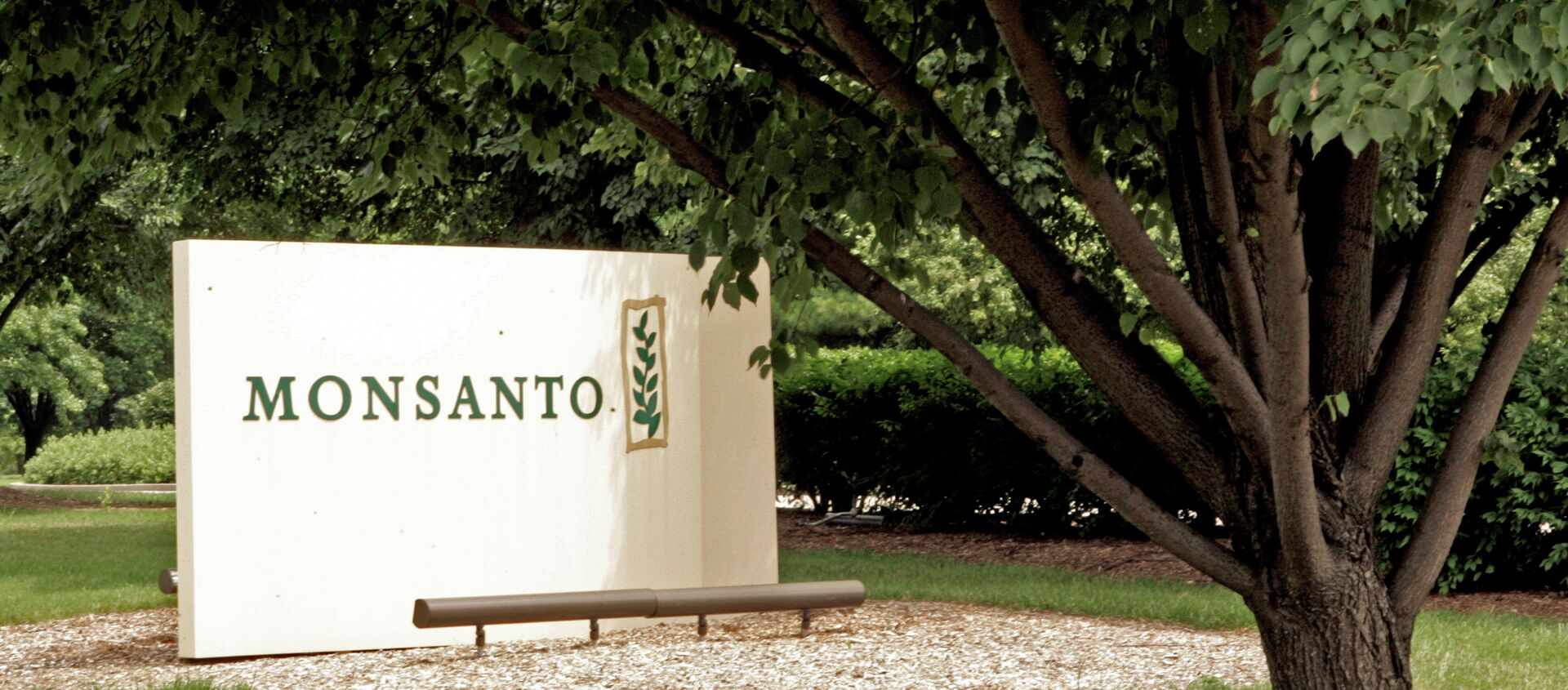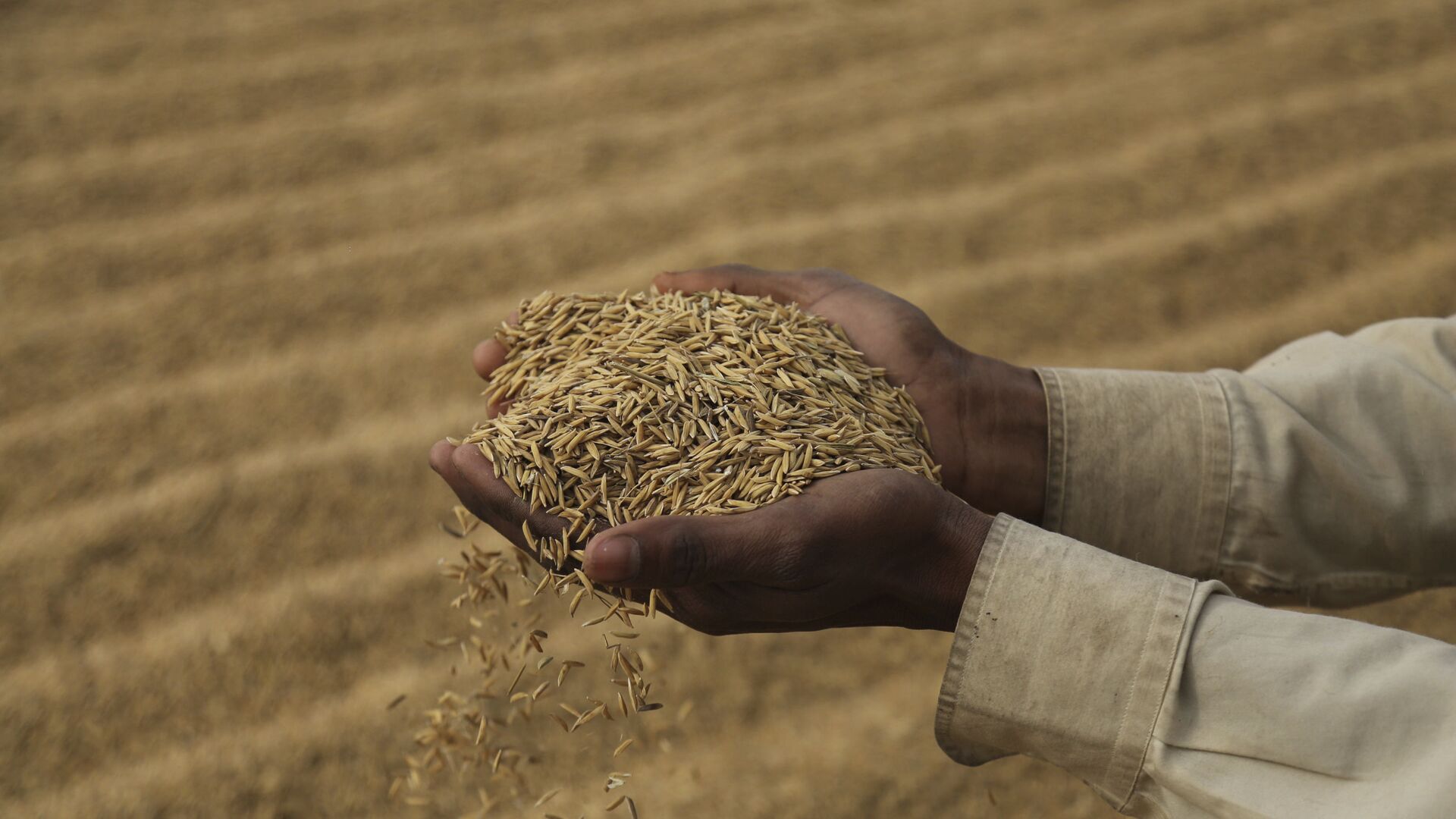https://sputnikglobe.com/20211020/conspiracy-to-malign-image-india-rejects-eus-claim-of-exporting-genetically-modified-rice-1090076047.html
'Conspiracy to Malign' Image: India Rejects EU's Claim of Exporting Genetically Modified Rice
'Conspiracy to Malign' Image: India Rejects EU's Claim of Exporting Genetically Modified Rice
Sputnik International
India is the second-biggest rice producer in the world and the biggest exporter of the crop. In 2020-2021, Indian farmers exported $8.6 billion of rice. The... 20.10.2021, Sputnik International
2021-10-20T18:18+0000
2021-10-20T18:18+0000
2023-04-12T17:14+0000
genetically modified food
rice
european union (eu)
https://cdn1.img.sputnikglobe.com/img/07e5/06/0a/1083119130_0:160:3073:1888_1920x0_80_0_0_130fa1884a97823d0731f3c7de2c8ae8.jpg
New Delhi has rejected the European Union’s (EU) claim that it exported around 500 tonnes of genetically modified (GM) rice to the 27-nation bloc in June this year, saying that the allegation could be a “conspiracy to malign the image of India as a reliable supplier of quality rice to the world”.The government added that experts at the Genetic Engineering Appraisal Committee (GEAC), which reports to the federal environment ministry, were still investigating the matter.Acting on a reported tip-off by France in June, the European Commission's Rapid Alert System for Food and Feed (RASFF) identified an “illegal” GM rice variety in food products marketed in the EU and several other nations, including, among others, the United States, Mauritius, Qatar, the United Arab Emirates and Turkey.American chocolate manufacturer Mars Wrigley Confectionery also recalled several batches of its M&M’s Crispy product from the EU market over suspected use of GM rice to manufacture rice flour, one of the chief ingredients.The official Indian release further reckoned that the GM rice found in the rice consignment could have been a result of “cross contamination” while the rice was being processed into final products, including rice flour, at factories in the EU.The strong government rebuttal comes after the Coalition for a GM-Free India reportedly expressed their concerns over the withdrawal of products made from rice flour from the supermarket shelves of the EU and other countries. The Coalition for a GM-Free India describes itself as an informal network of farmers and organisations collectively working towards keeping the country “GM free”.The letter, addressed to AK Jain, chairman of the Genetic Engineering Appraisal Committee, expressed fears that the incident would cost Indian farmers and affect the market price of Indian rice around the world."While India does not allow GM rice cultivation, we've had various GM rice varieties at various stages of confined field trials. Global experiences show us that seed and food supply chains can get contaminated from field trials of GM crops in general,” the letter said, according to a report in India's English daily Deccan Herald.Although India has banned GM crops, it has in the past conducted confined field trials of various varieties of genetically modified crops, including of cotton, rice and aubergine among others.
https://sputnikglobe.com/20190108/India-Monsanto-Patent-1071290724.html
Sputnik International
feedback@sputniknews.com
+74956456601
MIA „Rosiya Segodnya“
2021
News
en_EN
Sputnik International
feedback@sputniknews.com
+74956456601
MIA „Rosiya Segodnya“
Sputnik International
feedback@sputniknews.com
+74956456601
MIA „Rosiya Segodnya“
genetically modified food, rice, european union (eu)
genetically modified food, rice, european union (eu)
'Conspiracy to Malign' Image: India Rejects EU's Claim of Exporting Genetically Modified Rice
18:18 GMT 20.10.2021 (Updated: 17:14 GMT 12.04.2023) India is the second-biggest rice producer in the world and the biggest exporter of the crop. In 2020-2021, Indian farmers exported $8.6 billion of rice. The EU's allegations risk damaging the marketability of Indian rice in the bloc, which has strict laws against GM crops.
New Delhi has rejected the European Union’s (EU) claim that it exported around 500 tonnes of
genetically modified (GM) rice to the 27-nation bloc in June this year, saying that the allegation could be a “conspiracy to malign the image of India as a reliable supplier of quality rice to the world”.
“There is no commercial variety of GM rice in India. In fact, the commercial GM cultivation of rice is forbidden in India. There is no question of GM rice being exported from India,” a statement from India’s commerce ministry said on Wednesday.
The government added that experts at the Genetic Engineering Appraisal Committee (GEAC), which reports to the federal environment ministry, were still investigating the matter.
Acting on a reported tip-off by France in June, the European Commission's Rapid Alert System for Food and Feed (RASFF) identified an “illegal” GM rice variety in food products marketed in the EU and several other nations, including, among others, the United States, Mauritius, Qatar, the United Arab Emirates and Turkey.
American chocolate manufacturer Mars Wrigley Confectionery also
recalled several batches of its M&M’s Crispy product from the EU market over suspected use of GM rice to manufacture rice flour, one of the chief ingredients.

8 January 2019, 08:56 GMT
The official Indian release further reckoned that the GM rice found in the rice consignment could have been a result of “cross contamination” while the rice was being processed into final products, including rice flour, at factories in the EU.
“…the final sample was drawn at the port of loading by an internationally recognised independent inspection agency which after testing and verification, issued a non-GMO certificate before shipment,” added the government release.
The strong government rebuttal comes after the Coalition for a GM-Free India reportedly expressed their concerns over the withdrawal of products made from rice flour from the supermarket shelves of the EU and other countries. The Coalition for a GM-Free India describes itself as an informal network of farmers and organisations collectively working towards keeping the country “GM free”.
The letter, addressed to AK Jain, chairman of the Genetic Engineering Appraisal Committee, expressed fears that the incident would cost Indian farmers and affect the market price of Indian rice around the world.
"While India does not allow GM rice cultivation, we've had various GM rice varieties at various stages of confined field trials. Global experiences show us that seed and food supply chains can get contaminated from field trials of GM crops in general,” the letter said, according to a report in India's English daily
Deccan Herald.
Although India has banned GM crops, it has in the past conducted confined field trials of various varieties of genetically modified crops, including of cotton, rice and aubergine among others.




